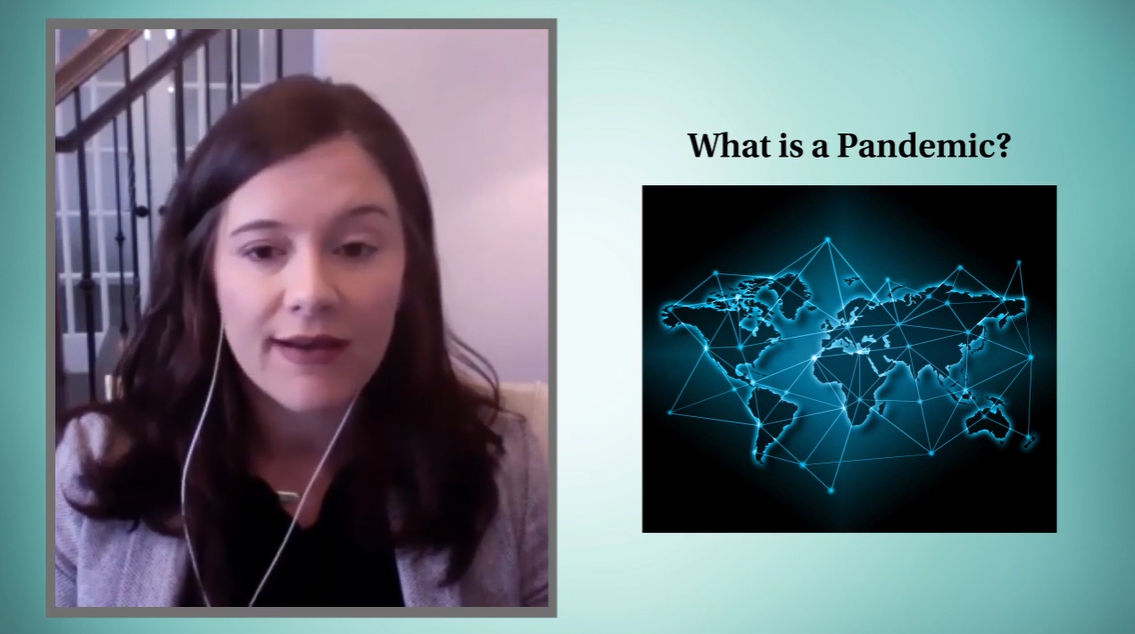In this video, Dr. Mallory Wines, assistant professor for the School of Counseling, defines “pandemic,” outlines the current orders in place, and explains what U.S. residents are being asked to do, such as teleworking, using telemedicine and practicing social distancing.
She also provides tips on how to effectively respond to stress during the COVID-19 pandemic, such as:
- learning about the symptoms and being self-aware
- allowing yourself and your family time to recover
- doing self-care activities
- asking for help
- staying physically and mentally healthy
- maintaining a daily routine and coordinating schedules with family members
- staying connected with other people
- setting a work schedule and dedicated work space
- establishing boundaries (work time versus personal time)
She also shares ways to lend a helping hand to the community by helping the elderly get groceries/medications, making face masks, donating blood, and assisting food banks with packaging or distribution of food.
Speaker Bio
Dr. Wines has been a Licensed Professional Clinical Counselor in Ohio since 2011, providing behavioral health services to various populations including children, adolescents, adults, and older adults. She specializes in working with trauma, PTSD, mood disorders, and childhood disorders. A majority of her clinical work has been in outpatient mental health centers, school settings, and in-home services.
She has experience teaching in a graduate counseling and school psychology program, and supervising masters level counselors-in-training and therapeutic support staff. Her research interests include PTSD, trauma-exposure, vicarious traumatization, and posttraumatic growth.
Sign up to learn more about Divine Mercy University’s graduate degree programs in psychology and counseling.


